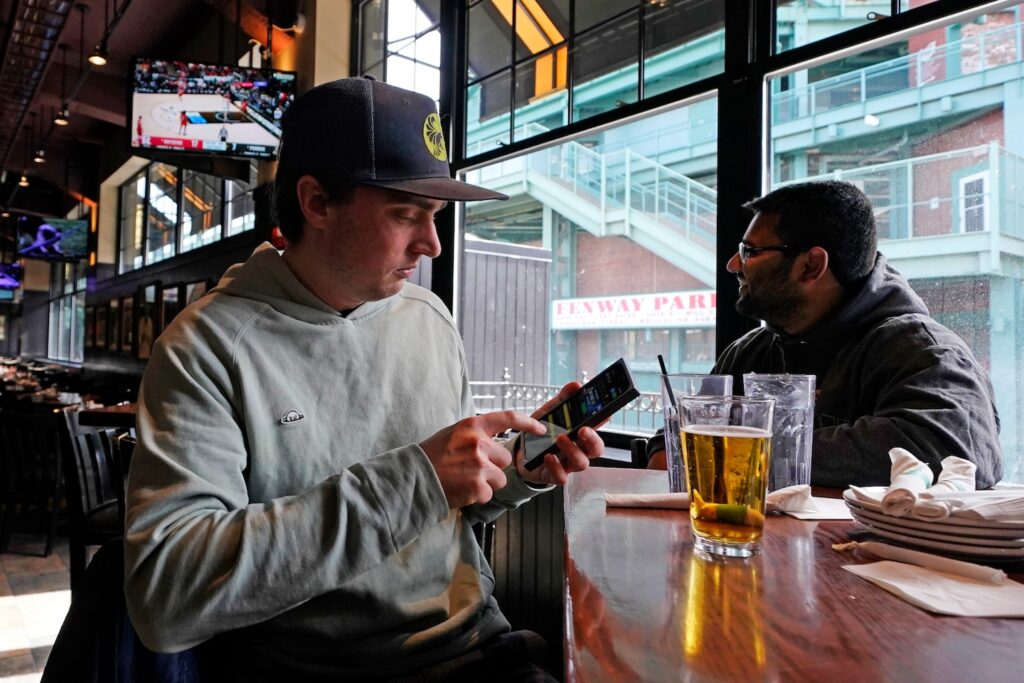This confluence of events on the sports calendar also means an explosion in online betting. Unfortunately, Americans also face increased debt, bankruptcy, and loss of jobs and homes.
As expected, the problem of gambling has spilled over into the sport itself, bringing a whiff of scandal and raising questions about the integrity of the game. Major League Baseball's historic opening game in Seoul came after Ippei Mizuhara, an interpreter for baseball's biggest and highest-paid star, Shohei Ohtani, lost millions of dollars in gambling debt to the Los Angeles Dodgers. Ruined by the news that he was fired from. It appears that the money was paid for by funds transferred from Mr. Otani's bank account. Ohtani has denied placing the bet or knowing about the interpreter's use of funds from his personal account, and MLB said it is investigating the incident.
There are signs of scandal in other sports as well. The NBA announced in March that it was investigating Toronto Raptors star two-way player Jontay Porter for gambling violations. Some NBA players said they received threats from gamblers after games. NCAA President Charlie Baker said last month that he would ask states to ban betting on student-athletes' individual performance.
These issues stem from a 2018 Supreme Court decision. Murphy vs. NCAA, which struck down the federal ban on sports betting and allowed states to set their own rules. Thirty-eight states and localities now allow sports betting, and the proliferation of mobile betting apps and online sportsbooks, now numbering more than 40, is growing into a multibillion-dollar industry. It also creates a culture of addiction.
Americans bet $120 billion on sports last year. In January, sports betting revenue hit an all-time high of $1.48 billion for the month, according to tracking by the United States Gaming Association. This is due to a decline in other forms of gambling, namely land-based in-person games such as casinos, slot machines, and gaming tables.
Betting on sports competitions is at least as old as ancient Greece. But in the latest version, mobile betting apps have made gambling easier than ever. You can easily place a bet with just a few taps from the comfort of your living room.
Even more pernicious is the rapid rise in in-game micro-bets, known as “prop bets,” which are made in real-time on certain aspects of any game, encouraging more spontaneous and impulsive gambling. How many free throws will a basketball player make in the first quarter? Who will hit the first home run in a baseball game? You can bet on that.
Add to that the now ubiquitous sportsbook ads peppered with celebrities during games.
Major League Baseball sports once tried to distance itself from gambling, fearing it would taint the game. Recall that Pete Rose, baseball's all-time hitting leader, was permanently banned from baseball for betting on baseball games involving his team, the Cincinnati Reds, while he was a player and manager.
But then murphy With this decision, major league sports embraced gambling. Exclusive partnerships with the biggest sportsbooks like FanDuel, DraftKings, and Caesars, allowing them to use their brands and trademarks in marketing, are a great way to maintain fan interest while generating a lucrative revenue stream. This is a new method.
With legalization, sports betting could be regulated and exposed to public view. However, the gaming industry has resisted virtually all regulatory proposals. Cash-strapped states, obsessed with new revenue, have always been reluctant to raise taxes to pay for services and balk at reining in growing industries. Congress has also shown little enthusiasm.
Some reasonable regulations should be immediately imposed. One of the bills in Congress would limit advertising during live games and ban the use of “bonus bets” and other sweeteners. A possible model for restricting advertising, which would run into free speech problems, would be legally imposed restrictions on tobacco advertising based on the protection of public health.
The bill would also require sportsbooks to conduct “verify price” checks on their customers. There may be limits on the number of bets allowed within a 24-hour period, or on the amount of each bet.
Another bill, introduced by Sen. Richard Blumenthal (D-Conn.), would redirect half of the current federal excise tax on gambling to addiction treatment and research. It deserves a public hearing and a vote.
Sports and gambling are increasingly intertwined. But there may still be time to put a sensible brake on America's dangerous and growing addiction to sports betting.


